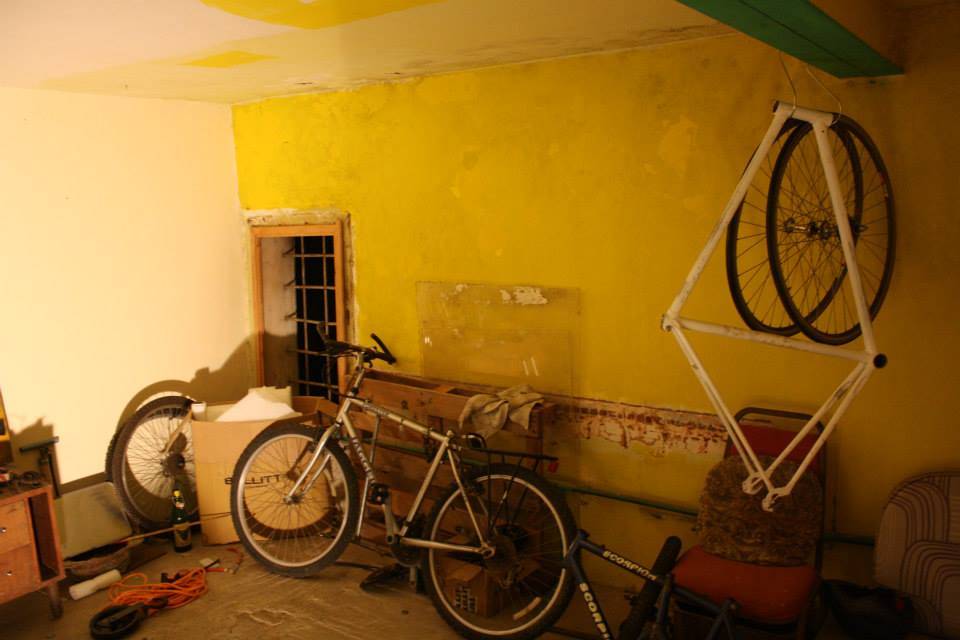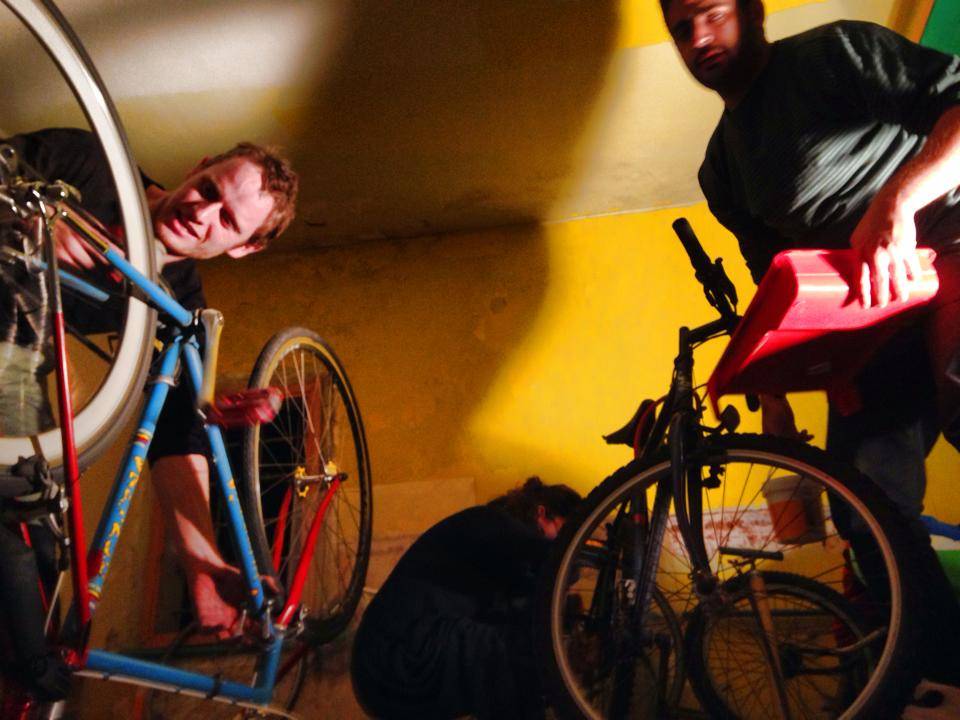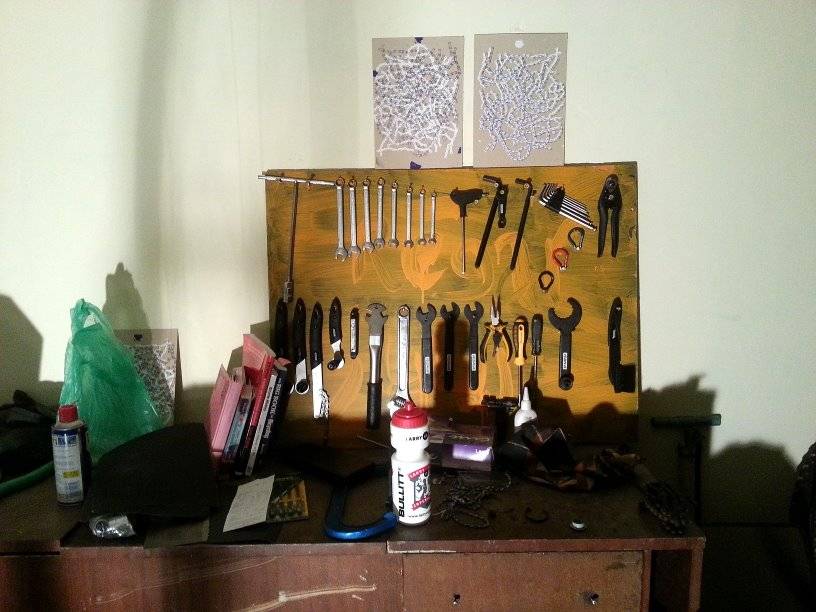Re-Cycling with Regar: Beirut’s Bicycle Kitchen
For many, bicycles are regarded as nothing more than a mode of leisure and entertainment. They’re ridden around parking garages and public spaces for a couple of years before being ultimately retired when we’re old enough to get a driver’s license, left to rust away and deteriorate. But for some, a bicycle is much more than a mere toy and serves a greater function: a method of transportation. Despite its efficiency and benefits, cycling remains relatively unpopular in Beirut and many would rather push gas pedals than bike pedals.
A team of young cyclists and bicycle enthusiasts are hoping to change all that and reunite Beirut with bikes through Regar: Beirut’s bicycle kitchen.

(Photo via Facebook)
Nestled in a humble 10 m² space in Zqaq El Blat’s The Mansion, Regar is a bicycle kitchen dedicated to the repair and restoration of disused and derelict bicycles, so that they may be ridden once more or passed on to a new owner; the more bikes in the world, the better. In essence, Regar is a non-profit bicycle kitchen; a space equipped with the necessary tools and materials for the repair and modification of bikes. But the team also sees it as “a place for thoughts and ideas,” hoping that it can also become a place for people to come and learn how to fix and care for their own bikes.
Regar is the brainchild of cyclists Mohamad Cheblak, Matt Saunders, Rayya Haddad, Saleem Salha and Siwar Kraytem, the same team who brought Beirut its first ever bike messenger service, Deghri Messengers, in September 2013. Through their services, the Regar crew hopes to promote and popularize cycling in Beirut. “It’s a convenient way of transportation, it makes me feel good, it’s about freedom; you choose when you’re moving and how and where,” says Cheblak, who adds: “One of the things we try to communicate to people is that we’re not superheroes, we’re normal people. We’re not sporty and all in Lycra. Literally anyone can do it within Beirut, so imagine how life could be if there was no traffic, no valet parking.”

(Photo via Facebook)
From physical exercise to reduction of pollution, there are plenty of reasons to take up cycling, but the one that most people would agree on is the infamous Lebanese traffic. Traffic is among the most persistent of Lebanese grievances, showing no signs of improvement or progress for years and years. Cheblak explains: “It’s an infinite loop. People are buying cars and they get angry because of the traffic, but they’re not doing anything about it. They keep on buying cars and banks keep on giving loans. It’s a crisis, and cycling is one of the solutions.”
But just like motorists, cyclists face various problems in Beirut, both physical and social. One major obstacle is bad road infrastructure. Certain obstructions such as potholes and rubbish, may be easily bypassed by drivers and go undetected, but to a cyclist they are major inconveniences and can be hazardous. Other issues include the lack of bike lanes, designated areas for cyclists on the streets, and the lack of bike racks to park bikes in. Kraytem recounts an incident when she locked her bike to a metal post only to be to be told by a police officer that parking a bike there was prohibited.

(Photo via Facebook)
The root of all these matters is definitely the general attitude that the Lebanese have towards bicycles and cyclists. Cyclists are perceived as inferior and are either attacked, like when drivers disregard their safety and speed past them, or dismissed, considered childish and get told off for riding their bikes in the street. “We have the right to be on the street. We’re equal to other cars, we don’t have less rights than other cars on the street,” states Cheblak.
So far, Regar has repaired one bike, a bicycle which was in pretty bad shape after being left out in the open for about six months. Now it’s back to its prime and its owner couldn’t be happier. The crew eagerly anticipates the arrival of even more bikes for them to bring back to life, but they’re not stopping there: Regar hopes to reach out to people with older vintage bikes, such as models from the 1970s, as well as providing their services to migrant workers at no cost and conducting workshops teaching people how to repair and maintain their bikes.
To find out more about Regar, visit their Facebook page, and get in touch if you would like to donate an old bike or send yours in for repair.